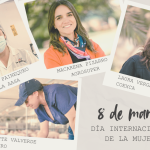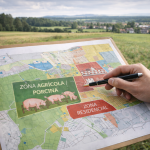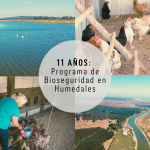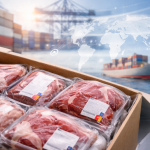On March 16 of this year, a Decree was published in the Official Gazette of the Republic of Chile that sets collection and recovery goals for packaging. It is one of the “priority products” included in the Extended Producer Responsibility Law, known as the REP Law (Ley de Responsabilidad Extendida del Productor in Spanish). For the purposes of the Decree, packaging is considered as containers made of at least one of the following materials: Tetra Pak or liquid packaging board, metal, paper, and cardboard, plastic or glass. The goal of the regulation is for both manufacturers and importers of packaged consumer goods, called «producers» in the law, to arrange and finance the management of this type of waste when it reaches the market in compliance with the set goals, which increase each year.
Nathalia Silva is a specialist on technical aspects related to the REP Law and holds a Master’s in Sustainability Management, with more than ten years of experience in circular economy, ecodesign and innovation. She explains: «the priority is on those products that represent a problem for the country because of how they are being handled or if there is a lack of waste management.» Silva points out that the law prioritizes: oils and lubricants, electrical and electronic devices, batteries, tires, and finally containers and packaging. Each of these elements will be subject to a specific regulation that specifies the obligations and scope of the law. Two regulations, for tires and packaging, have already been completed. The publication in the Official Gazette sets in motion key timelines for producers, who have to resolve how to comply with the law.”
Renzo Boccanegra, Head of Projects at the Sustainability Department of the Chilean Meat Exporters’ Association, ChileCarne, affirms that “currently, Chile produces 19 million tons of waste. The law provides a great opportunity to use this ‘raw material’ for recovery, job creation, and innovation, in order to make the system efficient while preventing us from continuing to waste recyclable materials in landfills.”
And he adds: “it’s important to note that the implementation of the REP Law poses various challenges to companies, which is why we need a paradigm shift in the management of waste generated as a result of the production process, as well as the packaging we put in the market. Company sustainability departments should no longer be solely responsible for this task; this needs to be managed by using a more holistic approach because this is what will determine the sales model for products, given that once they are marketed, a commercial analysis should consider the cost that must be paid in order to recycle the container.”
In line with this change at the national level and its ongoing efforts to develop a sustainable industry based on circular economy, the pork and poultry sector, through ChileCarne and the Pork Producers Trade Association, ASPROCER, has promoted various instances for the sector’s stakeholders to meet and discuss the positive and negative implications and impacts of this standard for the industry, as well as to evaluate the requirements that will enter into force in 2023, and the aspects each producer must consider in order to comply. These meetings have allowed poultry and pork producers, processing plants, and traders to solve doubts and identify critical points to decide how to better address them.
The law sets goals for household and non-household sectors—producers from different sectors—for each of the categories. «It is not feasible to meet overlapping goals. The authorities expect clearly separate flows in both declaration and management,» explains Nathalia Silva. «They must be separate models with parallel management,» she underscores.
In Silva’s opinion, this project aims to provide every citizen who is not recycling, currently more than 90%, a motivation and push to recycle. “We must motivate them, because without public participation, this will not succeed. We need to offer a simple and concrete solution where the public can easily choose how and when to recycle,” she says.
Agrosuper is participating in the successful implementation of the law. Together with other Chilean and multinational companies from various sectors, it has developed a waste collection system that has benefited and will continue to benefit many Chilean households.
Thus, the Chilean Food and Beverage Association (AB Chile), together with the Association of Municipalities for Environmental Sustainability (Amusa) and KDM, launched a waste collection pilot program called “Hoy Reciclo” (I recycle today), which will benefit more than a thousand families from Colina and Quilicura (Metropolitan Region).
The program includes the selective collection of household waste, for which each household will receive a 120-liter container to collect recyclable materials such as cardboard, paper, plastic, aluminum and Tetra Pak liquid packaging board containers. It will be collected once a week by a designated truck and taken to a sorting plant to continue the recycling process. Glass must be disposed of separately in one of the various containers managed by Cristalerías Chile in the area.
This new way of recycling will facilitate household waste collection, since residents will not need to go to a collection site or sort these elements themselves. The sorting will be carried out at KDM’s treatment and sorting plants in Quilicura and Til Til (Metropolitan Region). From there, they will be transferred to various recycling plants according to material type.
This program joins the pilot started in 2019 by AB Chile in the Municipality of Providencia (Santiago), which collects waste from more than 63,000 apartments in about 2,000 buildings with the aim of analyzing the results of this system for the implementation of the REP Law.
Both pilot programs will make it possible to conduct relevant studies for the implementation of this system throughout Chile, both in homes and buildings, gathering information on recycling rates, disposal level, the country’s installed capacity, and community participation, the latter being a key aspect for the proper implementation of the REP Law.
For more background information and details on the REP Law, please visit the Ministry of the Environment’s website https://economiacircular.mma.gob.cl/ley-rep/ (in Spanish).






